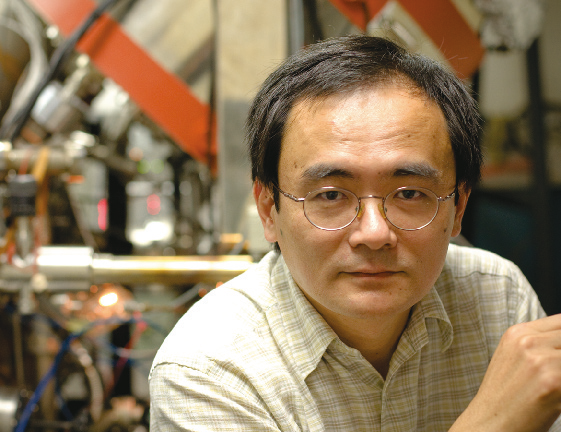An environmental-cleanup company marketing a Lehigh University nanoparticle technology has earned national recognition from the Association of University Technology Managers (AUTM).
Lehigh Nanotech LLC, which has used iron nanoparticles to remediate heavily polluted sites in six states, was named one of the nation’s top 25 technology-collaboration stories by AUTM.
AUTM, an international organization devoted to technology transfer and intellectual-property issues, included a five-page article about Lehigh Nanotech in its annual Better World Report.
The nanoparticles commercialized by Lehigh Nanotech contain more than 99.9 percent iron and a small amount of a noble element catalyst. They were invented by Wei-xian Zhang, associate professor of civil and environmental engineering at Lehigh.
The new technology, said the Better World Report, “is successfully cleaning up a wide range of soil and groundwater sites [contaminated by] toxic materials, heavy metals, fertilizers and pesticides in about a tenth of the time of typical environmental remediation.
“It takes only six ounces of the tiny nanomaterials, versus a ton of larger compounds, to make sweeping changes in cleaning up contaminated environments. This revolutionary breakthrough in nanotechnology is helping clean up hazardous waste sites and toxic industrial sites faster and more economically than ever before.”
How much faster? In less than a year, says Paul Osimo, vice president of Lehigh Nanotech, Zhang’s nanoparticles can clean up a hazardous waste that would take 10 to 20 years to remediate using traditional methods.
“This is a huge breakthrough,” Osimo told AUTM. “These small nanoparticles are solving big problems.”
The nanoparticles’ advantage, says Zhang, is their size. Measuring 20 to 50 nm in diameter, the particles have a greater proportional surface area than larger quantities of the same catalyst, giving them more reactivity with toxins. When injected into groundwater, they react with and detoxify contaminants.
“The complex molecules of chlorinated hydrocarbons, such as industrial degreasers and chemical solvents, are broken apart into simple, nontoxic compounds,” said Osimo.
Lehigh Nanotech has completed remediation projects in Pennsylvania, New Jersey, New York, Maryland, Ohio and Florida. Treated sites include landfills, an electronics manufacturing plant, a vinyl chloride manufacturing plant, chemical plants and U.S. Department of Defense facilities. Contaminants removed include pesticides, vinyl chloride, trichloroethylene (TCE) and perchloroethylene (PCE).
Zhang has received funding from EPA, NSF, the Ben Franklin Technology Partners and the State of Pennsylvania.
Lehigh Nanotech was formed two years ago with help from Lehigh’s office of technology transfer.

